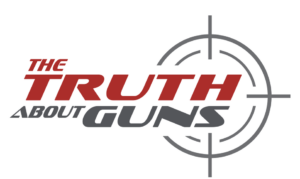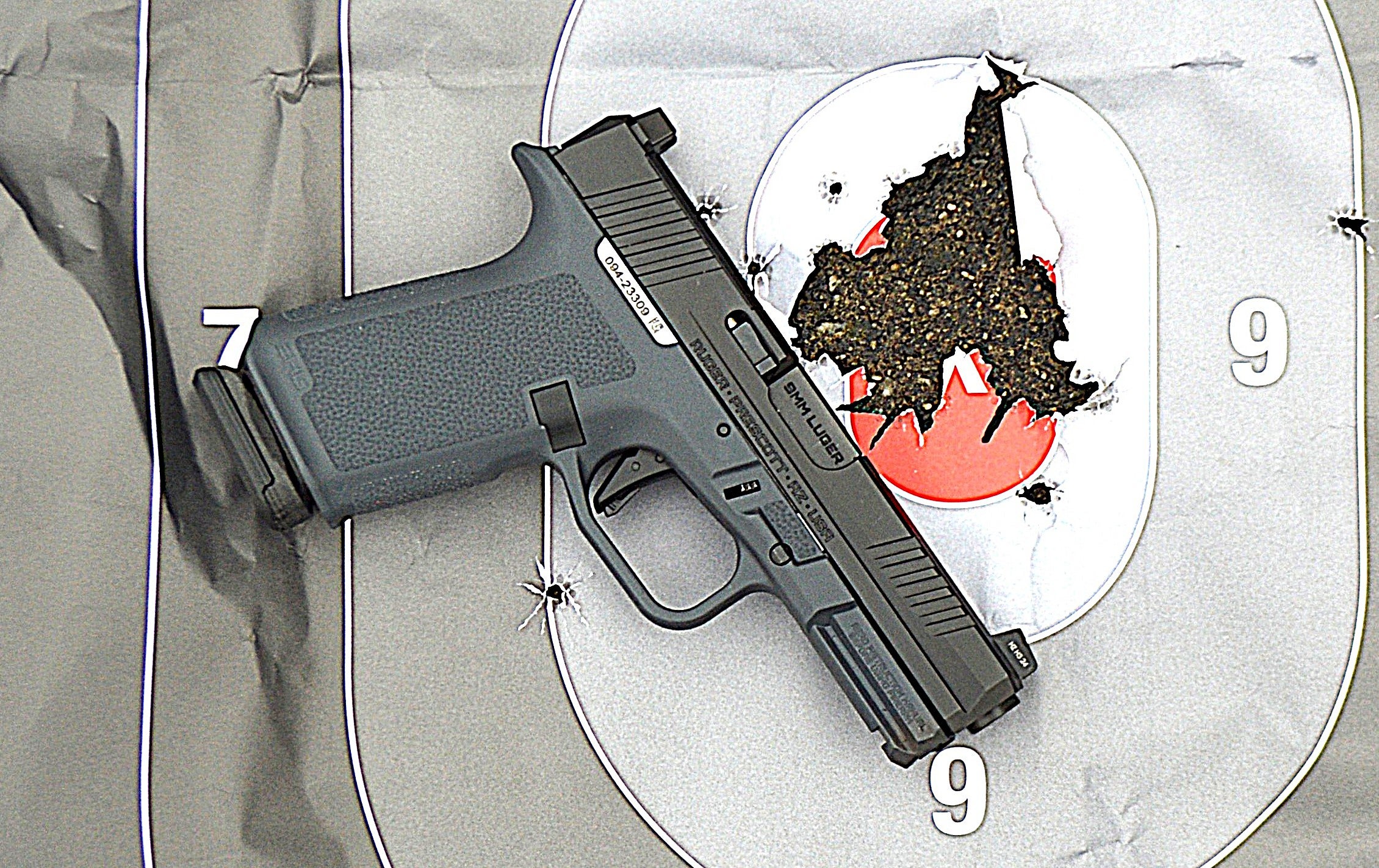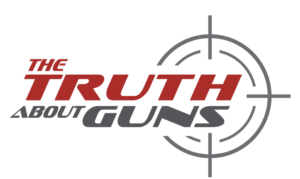I’ve taken a number of home defense courses. At the beginning of each class, I imagine an episode of Family Guy. Brian’s sitting in a row of students. The firearms instructor’s got guns everywhere, at least one rifle, knives aplenty and criss-crossing bandoliers of bullets. “Before we begin,” the instructor says. “You need to ask yourself a simple question. Would I be willing to shoot another human being? If the answer’s no, you shouldn’t be here.” Brian thinks about it and stands up. “You know what? You’re right. I don’t think I could do it. I just don’t think I could kill someone with a gun.”
“Pussy,” the instructor says.
What?”
“Faggot.”
“Now hang on—”
“Why don’t you BLEEP off you cowardly, inbred mongrel. I bet your brother BLEEPed your mother.”
Brian pulls a gun and shoots the instructor several times.
“How about that?” he says. “I guess I could shoot a human being.”
I’m thinking that the vast majority of gun owners could and would shoot someone—under the right circumstance. If an attacker put them or their loved ones in imminent danger of death or mutilation, they’d shoot. It’s the natural thing to do: millions of years of evolution are telling you to protect your genetic legacy. Kill or be killed? Kill. Next?
Would you shoot to save an innocent stranger? As with any life or death decision, there are a huge number of variables—all of which will be subconsciously calculated in moments. First, how strange? Is the person in mortal peril someone you’ve never met before, the guy who’s been selling you morning coffee for twenty-three years or a teacher at your kid’s school?
Speaking of genetics, age and gender also come into play. A male is more likely to protect a young person and/or a female than shoot to save some middle-aged guy. Wow. Did it just get cold in here? Sorry, but we’re talking about hard-wiring. Yes, there are people who learn non-violence, but how many Quakers pack heat? And who’s to say Quakerism isn’t genetic?
Anyway, let’s check in with the nurture side of this decision and consider three rational reasons why you shouldn’t shoot to save an innocent stranger’s life.
1. You don’t know the full story
Our pals at Armed Response are all over this one. Their favorite example: you see a young woman being dragged into a car by two thugs. She’s screaming “RAPE! RAPE!” Only the two “thugs” are undercover police and the “victim” is a woman they’re trying to arrest. Oops.
Here’s another one: you enter a proverbial mini-mart and see a man staggering around the aisles with a gun. Terrified customers cower in fear. Another man’s behind the counter, screaming “HE’S GOT A GUN!” pointing at the guy in the middle of the store.
Who’s store is it anyway? Maybe the guy in the aisles is the clerk who came out to defend the store and the guy behind the counter is the robber hitting up the cash register. You don’t know.
You are not legally compelled to save anyone’s life; you are under no legal obligation to sort the good guys from the bad guys and stop the bad guys from doing bad things. Morally, you are not responsible for what the bad guys do. But you are responsible for your own actions. And your own mistakes.
Don’t forget that high stress situations create “tunnel vision.” You might focus on the guy with the gun, or just the gun itself, to the complete and total exclusion of anything else. You could easily miss information that would give you a very different perspective on events.
Do you want to take that chance for a stranger? Knowing that the consequences of discharging a firearm in public will be beyond bad for you and your family, no matter what (see: below)?
Some people live by Edmund Burke’s admonition that “all that is necessary for the triumph of evil is that good men do nothing.” Yes but—being a good witness—mentally noting pertinent information about the perp and the crime—is far from nothing.
2. You don’t want to make a bad situation worse
I don’t care how much force-on-force training you’ve done; you have no idea how badly you’ll shoot in a violent confrontation. But you can guess. Badly. And badly’s not good when you’re trying to shoot one person (the perp) as opposed to another (a bystander or the innocent stranger you seek to save).
Could you accidentally shoot an innocent person while trying to save an innocent person? Absolutely. You could also miss or wound your target and piss off the perp, who then shoots an innocent person (or two or three). Or you could draw fire from his heretofore undetected accomplice. Who shoots you or someone else.
Click here and check out this story of a shootout at a pharmacy in California from this morning’s blog troll. Bottom line: when bullets start to fly, people often die. And not necessarily the right people.
Obviously, there are times when a concealed weapons holder is likely to intervene for the sake of someone who isn’t a family member. It’s hard to imagine a concealed carry license holder who would stand idly by and watch a spree killer rack up a body count. In, say, a school.
In that case, I say shoot and shoot well. Making sure that you’re not shooting an undercover police officer responding to the scene of the crime. (Did you actually see the guy with the gun shoot someone?) Trying not to get shot by an undercover police officer who thinks you are the spree killer, or the spree killer’s accomplice.
Even in this most dire of dire situations, it’s important to realize that hanging fire may be the better strategy. The instant you start shooting, the pace and ferocity of the bad guy’s attack will increase arithmetically.
Unless you know you can eliminate the threat—or threats—more innocent people may die in the resulting escalation than would have died if you’d waited for the incident to end or the police to arrive.
3. It’s not worth it
You want a horrible calculation? You got it. What’s a stranger’s life worth? To you. To your family.
The instant you take out your gun, your life is going to change. Whether you shoot or not, there will be a police investigation. You may be arrested. The cops may confiscate your guns. Leaving you and your family relatively defenseless against the family of the person you shot; or the person you wounded, got arrested or annoyed.
Even if it was a good shoot, you may be wrongfully convicted of a serious crime and sent to prison. Leaving your family without a Mommy or Daddy. The protector. The breadwinner. College fund? Gone. Family vacations? A distant memory. Oh, did I mention that you could be shot and killed?
At least in that case there’d be some insurance money. Sorry to return to the chilly side, but Armed Response reckons the average self-defense shooting costs the average shooter $100,000 in legal fees. (Massad Ayoob has a really nice house.) Just thought I’d put it out there. Because it is all about you. Your life. Your family. Your money. Your choice.
The trick is to make it a choice. The time to think through the “do I shoot to save a stranger” issue is now, before you find yourself in that situation. At that point, you’ll probably be acting on instinct. If you have a meta-program—don’t shoot unless I know the whole story and maybe not even then—you will at least have the option of not shooting.
I fully understand people who believe that they should use lethal force whenever necessary to save innocent lives and protect the community from criminals. They’re called cops, and you’re not one. As for you . . .
Shoot now, shoot later, or don’t shoot at all and (maybe) watch an innocent life or lives end in horror and bloodshed. It’s a horrible choice. But that’s what you get for strapping a firearm to your body.








Things to think about, sure–but how often do license holders shoot the wrong person, either through a mistake of facts or poor aim? Off the top of my head the statistics that I remember are that over 90% of the time we don't have to shoot at all– There are usually alternatives to shooting, even in cases where taking the shot would be legally justified.
When we do shoot, we get it wrong (legally at least) less than 2%.
I will not defend anyone's cash register. I will avoid shooting anyone if I can for as long as I can–but there are circumstances where I would shoot to save a stranger.
This is the most inane article I have ever read on this site. Your justification for NOT defending an innocent person’s life is that you might be wrongfully prosecuted for a crime you didn’t commit? Glad to know you’re fully vested in the “might makes right” mentality of the police state – in other words, get down and start licking boots because we ain’t in Kansas anymore, America is no longer the land of the free, and since out of control DAs are the new reality you better accept it and change your morality to suit it.